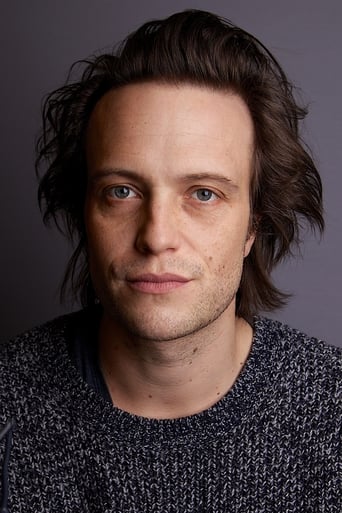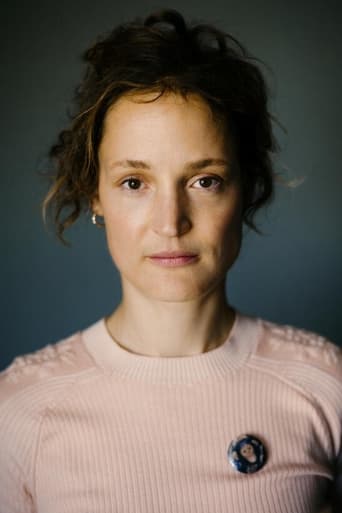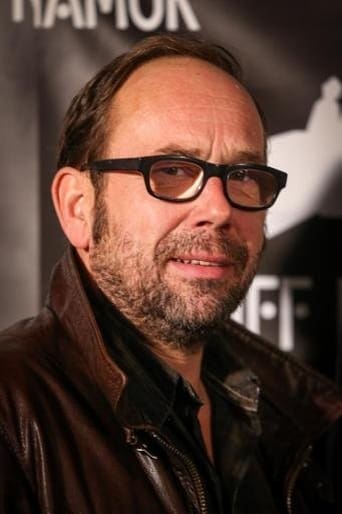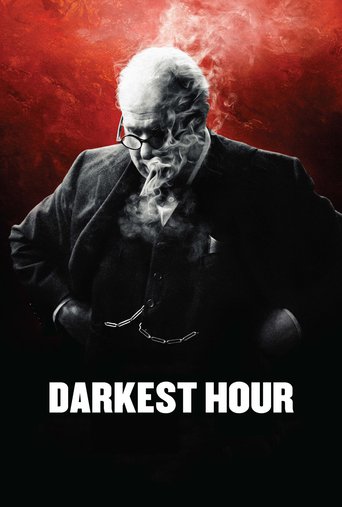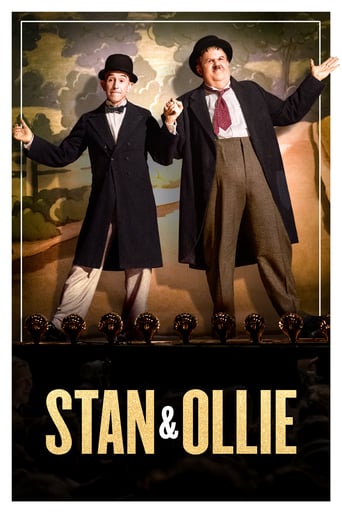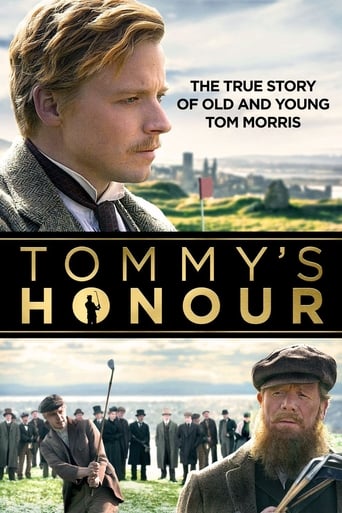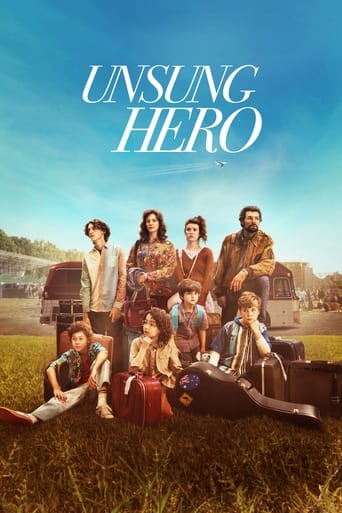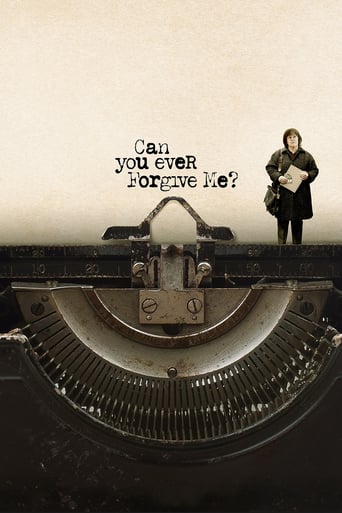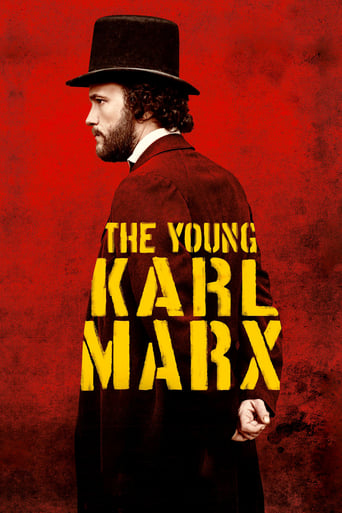
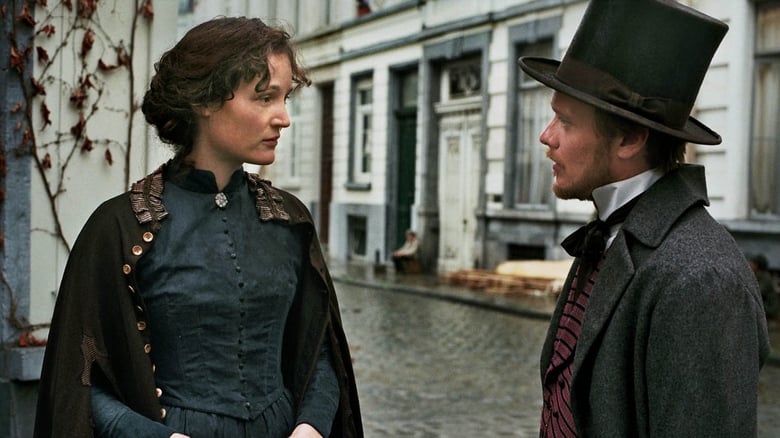
The Young Karl Marx (2017)
26 year-old Karl Marx embarks with his wife, Jenny, on the road to exile. In 1844 in Paris, he meets Friedrich Engels, an industrialist’s son, who has been investigating the sordid birth of the British working class. Engels, the dandy, provides the last piece of the puzzle to the young Karl Marx’s new vision of the world. Together, between censorship and the police’s repression, riots and political upheavals, they will lead the labor movement during its development into a modern era.
Watch Trailer
Cast


Similar titles
Reviews
It was wonderful to see Karl Marx and Engels in front of a big screen and to see them as real human beings who eat, drink, converse, and love. The film features a stellar cast with superb acting. However it's utterly lacking in vision, imagination, and depth. The film takes place in Prussia in 1843 when in Marx's was in his mid-20s, it ends five years later with the publication of the "Manifesto" ; a collaboration with his friend Engels in France just before the major 1848 revolutions sweeping Europe Instead of a stirring, sweeping, though-provoking historical film biography set in revolutionary times like the Lion of the Desert, it seemed like a barely memorable, emotionally uncompelling and intellectually unstimulating soap opera that could have been shown on PBS's Masterpiece Theater funded by the Ford Foundation. In other words, a film so absolutely sanitized, it's provokes little controversy, political or otherwise. Anyone really looking to understand the time period or know more about Marx and Engels will be sorely disappointing. The film begins with great promise showing peasants being hunted and killed by armed police on horseback for gathering fallen branches in the woods; an act of theft according to the elite; then cuts to Marx and his colleagues having their publishing headquarters raided, destroyed, and being arrested by Prussian police for writing critical articles in the progressive newspaper, the Rheinische Zeitung. Then the film turns into a bad B rated male bonding film. At first each is wary of each other as they meet in the parlor of the publisher Arnold Ruge. Within minutes of meeting, Engels tell Marx out of nowhere, You're the greatest materialist thinker of our time; A genius." (although we in the audience are stumped to know why) and from this moment on they become best buddies; acting like "hip", well-dressed, immature teenage schoolboys: drinking, smoking , running from cops, and country hopping reminiscent of the silent slapstick keystone comedy. The Young Karl Marx could have been a deeply, moving, intellectually profound, and politically astute film like Midnight Cowboy, Cinderella Liberty or countless other films from the 70's; where deep friendship and love is set among the realistic grinding poverty, desperation, and bleakness of a major city; but it is not. According to the director he wanted modern audiences to relate to the film. So the Europe of the 1840's is transformed into resembling the superficiality and shallowness of the 21st century. Never do we seem to feel the overwhelming suffering and anguish of the workers. If the director had never experienced or eye-witnessed hunger, deprivation, seen a slum or inside of a factory at the very he could have done some research. Marx' family is poor, but the only deprivation visually depicted is Marx buying cheap cigars; hardly deprivation unless one is smoking to quell hunger pains. Never do we see real images of poverty: People freezing without coats, wearing rags, or sick and coughing from malnutrition. Never do we see scenes such as: Marx or his wife complain about eating small scraps of just plain, stale bread 2 weeks in a row, or even a scene where Marx is seen giving his share of a tiny piece of bread to his wife or child with the look of hunger in his eyes. Scenes even true in the US today. Rather everything is purposely sanitized from the lack of horse crap and human crap on the city streets to the bums and ragged, homeless children on the streets to the regimented textile mills utterly devoid of any coughing or appearance of exhaustion among the female workers. Even the drab gray clothing and washed-out color effects dampen our ability to connect to the workers, because they make the film looks so unrealistic.I remember the first time I entered in a textile factory as a child in NYC. I will never forget the chaotic movement and especially the "fiber" dust. It was so thick; it burned my eyes and nose and blinded me as if I were in a sand storm. I will also clearly remember hearing the sounds of coughing and sneezing between the noise of the sewing machines operating; and the look of sheer exhaustion that every bone in the women's bodies cried out; including those who sat for 8 hour. Let me not also forget having to step over, with the help of my mother, over drunken bodies, because the bar was only two doors down. This was not grinding poverty, but much closer to anything shown in the Young Marx. The closest we get to working people suffering is in a fictionalized scene where Mary Burns describing how she knew someone who lost some fingers in an accident. One has to ask why did the director need to create this utterly unrealistic fictitious scene? Even today a working woman in the US would think twice before raising her voice and being fired; but Mary Burns not only raises her voice, but walks out of the factory Engel's father owns without even a second thought; especially considering her family could starve to death and she may blacklisted from ever working again. The scene seems to have been invented so Engels could later childishly get back at his father for firing her; as if doing a one upmanship: "In your face, dad! Marx spent thousands of hours in libraries doing research, taking meticulous notes, and writing and rewriting his works; a large portion of his life, but this is totally missing in the film. It's just not "hip" in today's society to show someone studying, reading lines of poetry, or listening to a beggar singing a classical aria on the street; all things that were part of life in the 1840's; even among factory workers. I rather doubt Marx composed his Labor Value of Theory between bouts of drunkenness or that Engels' major research for his History of the English Working Class came from romancing the young Mary Burns. With so much emphasis on drinking and smoking, I began to wonder ½ through the film how much funding the cigarette and alcohol companies provided.Except for this one scene, women seem to be sprinkled into the film so it won't be an all-male cast. Their major role, following sexual stereotyping, is supporting their men; as if the time period lacked any revolutionary women. Even the relationship between the main characters and their significant others appear shallow. Both appear more passionate about ideas then their spouses. We never learn why or how Marx and his wife met or married; only that she was an aristocrat, The only passion shown between them is a gratuitous, unromantic, unsensual, and visually distasteful sex scene, which prevents parents from bringing children to see the film. Unless this was the goal, why was it included? Just like the 2 women are sprinkled into the film, so are two of the biggest social critics of the time the influential social reformist Pierre-Joseph Proudhon and the Russian anarchist Mikhail Bakunin. We learn little about Proudhon's views and nothing about Bakunin at all. Though the film ends at the cusp of the failed 1848 revolutions sweeping Europe, no where do we see or hear the sounds of chains rattling; attempting to break free. In a film made during revolutionary times, where are the workers protesting in mass? The film follows Marx & Engels, but not the workers on the street, which Marx and Engels joined. Bourgeois cinema spends millions indoctrinates the working class into believing they need to follow a messiah who will rescue them. Marx and Engels were great men, but great men don't create history. MLK for example didn't start the civil right movement. No, Great men only do the steering, because it's the workers who create history. The 1848 revolutions didn't pop-up spontaneously among individuals, but through years of organizing among the masses. However, would we really expect anything different? Do we really expect our masters to teach us our history? To give us the theories and to show us how revolutions take place and that they are indeed possible? The film ends with Marx and Engels writing "The Communist Manifesto," and reading the stirring first line: "A spectre is haunting Europe - the spectre of Communism..." when it cuts to music and juxtaposed pictures. Instead of hearing the International and aspiring images of the Paris Commune and Russian Revolution, we hear the apolitical Bob Dylan song "Like a Rolling Stone" juxtaposed with photos from Che Guevara and Castro to Reagan and Thatcher. Ironically or perhaps expected Lenin and Stalin are not included; so as to not offend the financial backers or give the workers ideas.
Peck's film follows appealingly prickly young Marx and Engels from their early insistence on the hard truths of class-conflict against the utopian socialists of their day, to the founding of the first workers' international with a program of anti-capitalist struggle, the Communist Manifesto. Only a profit-system triumphalist would resist cheering them on along with the galvanized, wretched workers of 1848. The contrasting constraints on their activist mates, the high-born Jenny Marx and worker Mary Burns, raise still-pressing issues, and the situation of Engels, the revolutionary intellectual who must finance the cause by working for the enemy, may resonate with professionals today. But the movie, concluding with a montage of wars and protests churned up by the profit system in the present, feels frustrating and incomplete - inevitably so. It doesn't show the collective hero of Marx and Engels' vision, the world working class. This class, that produces all, is now ever more interlinked and technically advanced. But its political development hasn't caught up with material conditions that never existed in previous challenges to capitalism. The decisive fight against the old system for humanity's future has yet to be waged, its film still to be made. R. Freed
Rauol Peck has never shied away from difficult subjects: Lamumba and James Baldwin. Now, he has taken on Karl Marx and Friedrich Engels in 'Young Karl Marx'. This film won't earn him much in the US, a country which has done much to suppress Marx's thoughts and has waged a ferocious campaign to emasculate its own Communist Party and wither on the vine democratic socialism. Marxism is taught drily and negatively on university campuses today, as a failure and a foil to triumphant global capitalism. Peck's film , splendid in the use of the camera, capturing as it does, the ravages of early industrialization in the textile mill the Engels owned in Manchester, the miserable condition of workers, child labor, misery of the cannon fodder that fed what Blake called 'Satanic mills', and the general impoverishment of the laboring class. In Germany, in Prussia, the reign of the feudal king who exercises the rights of a feudal lord with it heavy burden on the peasantry, but in whose university slowly burns revolutionary thought that await the flame to blaze, and in Guizot's France tightly held on a leash any attempt other than fancy theories to arouse the people as they did in 1789. Americans find in general history tiresome, being a society open to the future where the past counts little. They little tolerance for grand theory or discussions, fiery public meetings, respectful exchanges of ideas that command our attention, but mostly in the mouths of demagogues. Like the majority of Americans, they have little tolerance for philosophical discussions, and abstractions bore them no end. The millions that in slavery and wage slavery that built capitalism count for little. So, Peck's 'Young Marx' plunges into the tense, tight theories of Socialist theory of romantics and materialists in the first half of the 19 century, that left its mark even today in the 21 century. Peck's camera and his principal actors August Diehl as the spirited Marx and Stefan Kornaske ass his life long partner and collaborator in struggle as Engels, wage serious battle against Proudhon and Wietling and Bakounin for example, against the Young Hegelians, against Bauer and Feuerbach and Rugge ..names that have some resonance today, and are best read of say in the works of GDH Cole or Wilson's 'To the Finland Station'. Argumentation and debate were fierce, and Marx suffered fools not gladly, nor did Engels who had a smoother manner. Marx and Engels love and turning the other cheek in the fight for the working class whom they saw as the future, and a spearhead of equality that even today's America fear seek through the courts to weaken further so that the the coupon clipeers and the ruling finace capitalists can fully have their way and increase profits and political power and control globally in the full expression of raw exploitation. Marx insisted that 'philosophers have only interpreted the world in various ways, the point is to change it'; they have put theory on its head, but he and Engels turn it around and put it on its feet. And the fruit of their theoretical struggle and intimate knowledge of the material conditions of the working class came to fruition in the writing (jointly) of the 'Communist Manifesto' that signaled the outbreak of revolution. So on top of the moment were this pair that the Revolutions of 1848 broke only weeks later, sweeping away the vestiges of feudalism in the German Holy Roman Empire, and spurred the national struggle throughout an industrializing Europe. The 'Manifesto' is wonderfully written and still hold water today, despite attacks...even in our age of reaction. 'The Young Marx' is in three languages: German, French and English. Peck has assembled a first rate cast and with flair and much artistry conveyed the passions of the young Marx and Engels. Peck's film hasn't a wide distribution, alas. And yet, in the small art house I saw it, the 100 seats were fully occupied, by people of all ages and 'middle class' conditions. The film reviewers on the whole have sort to express impatience in seeing the 'Young Marx",making large yawns and little effort to understand Peck's cinematic vocation in tackling Marx and Engels' thinking and activism. At the end Peck has footage of how wide and vast Marx's influence is: May 1968 in France, Vietnam War protest in the USA, Lumumba, and Mandela, for example. When Marx died Engels tribute sums his life up: Marx didn't die, he ceased to think.
This is a beautifully presented historical drama – and a political story/argument. It's based on the letters exchanged between Marx (August Diehl) and Friedrich Engels (Stefan Konarske). The film follows their friendship from their first meeting all the way until the the drafting of the Communist Manifesto. The story illuminates their arguments, their friendship, and their personal histories.Marx, played by August Diehl, in an angry way, impoverished, and looking for an argument. Engels, played by Stefan Konarske, is the wealthy fellow, a dandy and a romantic.The problem is, watching people argue about communist theories reminds me of my college days, minus the joint. It can be tedious, especially given the failure of communism. Nevertheless it's interesting if you're into politics and history. In fact it's a perfect film to show in a university course on social studies because it is, I believe, historically accurate. I would love to see someone take these characters and plop them down in present day to reflect on the course their ideas have taken. THAT would be a great talking film.


